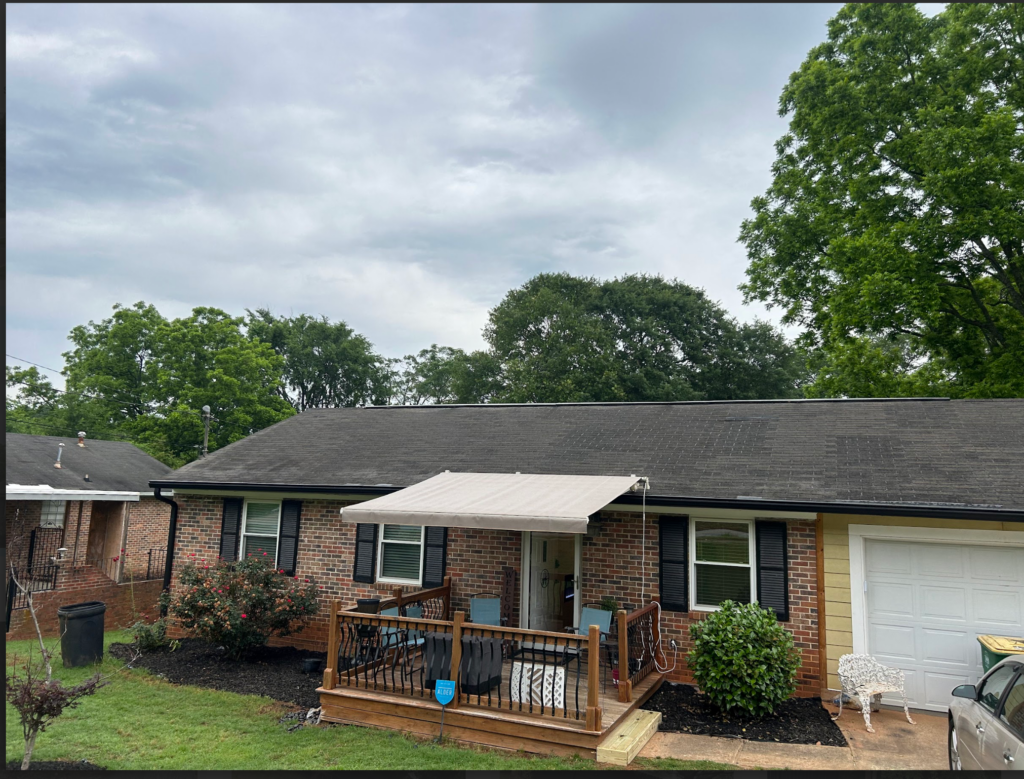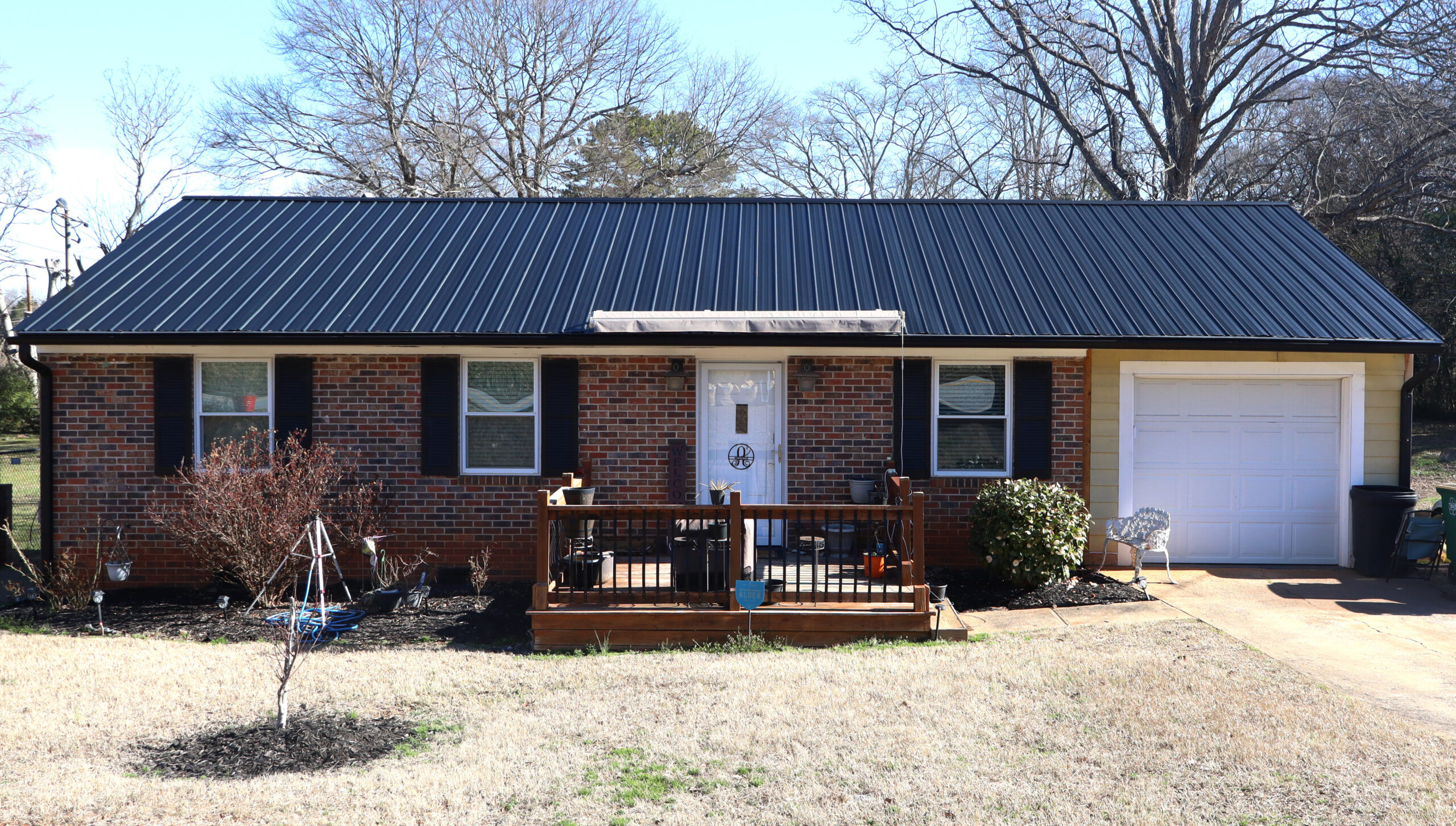Donna Archibald was born and raised in Athens, but when she needed to replace her roof, she found her ability to stay in her home threatened.
“I would have had to struggle and pay for it myself because my insurance company turned me down,” Archibald said. “If I had to pay for it, I think it was going to be $3,300 and not included with paying someone to do it.”
The repairs for Archibald’s home are part of the Athens-Clarke County government 2021 resolution to redress decades of harm caused, mostly to Black families, by urban renewal. The resolution pledged $2.5 million in reparations, $531,600 of which created the Equitable Home Preservation (EHP) Initiative, a program designed to help low- to moderate-income families make massive repairs to their homes so they can stay.
Taneisha Brooks leads the project as the EHP coordinator and grew up in the predominantly Black neighborhood of East Athens. She lived in public housing with her two children for 14 years until she was able to afford to purchase a house in Winterville. She said her experience of living and working in the community that EHP serves taught her the importance of building generational wealth.
I was able to kind of change the trajectory of my life and the life of my children,” Brooks said. “This job is really important to me because it is a resource and it’s a direct impact.”
That generational wealth is incredibly important to Brooks, who wanted to create a better life for her family and give back to her community. Brooks especially liked working on one of the homes EHP rehabilitated because it allowed the daughter of a woman who had recently died to keep her mother’s home and continue to build wealth through homeownership.
“Part of what we’re trying to do is create that generational wealth, prevent displacement and give people a quality of life,” Brooks said.
It’s especially important to help residents in East Athens and the Hancock Corridor because those neighborhoods have fewer resources relative to other parts of Athens, according to Brooks. The area is zoned so that individual rooms can be rented out, allowing landlords to rent at higher prices to UGA students, pricing out lower-income families.
The grant only serves certain areas, including East Athens and the Hancock Corridor. The majority of recipients are older, according to Brooks. The EHP started its work in March 2024 and focuses on major repairs of up to $25,000 per home, taking on one home per quarter.
Part of that lack of resources is that there’s no real library or safe place to gather in East Athens, so the young people who live there have nowhere to go after school.
“People are feeling like they’re being pushed out,” Brooks said.
Brooks mentioned student renters can be disruptive without caring about the local community in East Athens. One of the EHP beneficiaries she worked with has cancer, but the college students who live next to her throw loud parties without checking in on her first, Brooks said.
“It’s just like East Athens is its own little island,” Brooks said. “With the gentrification, they’re buying up a lot of houses in the area, so a lot of students are living there.”
A Family Home
Archibald grew up in the house where she was born in 1968 in East Athens, moving when she was 38 and returning a few years ago shortly before her mother died. Her parents purchased the home in 1966 when they moved back to Athens after spending time in New York.
It’s my home; I’ve been here all my life,” Archibald said. “If I can keep it, I want to hold on to it.”
Archibald renovated and decorated the interior of her home after moving back, but she was unable to afford the thousands of dollars out-of-pocket to replace her roof when her insurance company refused to pay for a new roof even though it was more than 17 years old. Archibald heard about EHP from Brooks and decided to apply.
Applicants for EHP must be considered middle to low income and fill out a form on the Historic Athens website to apply. After that, the EHP team reviews their application to see if they qualify.

Around Thanksgiving of 2024, EHP started work on building Archibald a new roof and added a deck to the back of her house. The program also sent volunteers to do some landscaping work in her yard on Martin Luther King Jr. Day.
“They were very nice and did what they said they was going to do, came when they said they was going to come,” Archibald said. “Everything worked out really well for me.”
History of Housing Discrimination
From 1954-1974 and even later, the U.S. federal government used the Housing Acts of 1949 and 1954 to give funds to municipalities, including Athens, to use eminent domain to redevelop privately owned land. In Athens, this meant the destruction of several Black communities including the Bottoms, Lickskillet and Linnentown.
The University of Richmond’s “Renewing Inequality” project found that 298 families in Athens were displaced by urban renewal projects between 1950-1966, the majority of them families of color.
Athens city officials bought property for far less than it was worth and, when some residents refused to move, used “intimidation, weaponized code enforcement, inequitable property value judgments, controlled demolition by fires, forced tenancy and rent, tokenized Black representations, invasions of financial privacy and paternalistic relocation policies” to force residents to move, according to the ACCGov resolution.
The properties that were once Linnentown and are now residential halls for UGA students are valued at $76 million — the number that takes into account the value of the land, $4.33 million, and what UGA built on it, $71.63 million, according to qPublic records.
The term for EHP ends in December 2026, so Brooks is seeking additional funding to keep the program going. With the current funds, EHP will only be able to restore 12 homes.
“I could foresee growth,” Brooks said. “I would love to be able to serve counties outside of Athens, like smaller counties, like Oglethorpe County, because I feel like we can really make a bigger impact.”
With her home restored, Archibald is looking forward to welcoming two grandchildren into her family in the summer of 2025. Both her son and daughter, who also grew up in the East Athens home, are expecting to grow their families.
“We all have been excited, very excited,” Archibald said. “I wish (Archibald’s mother) could see it because, I mean she loved all her grandkids, but we was in the home with her.”
Katie Guenthner is a junior majoring in journalism, Spanish and Latin American and Caribbean studies.









Show Comments (0)